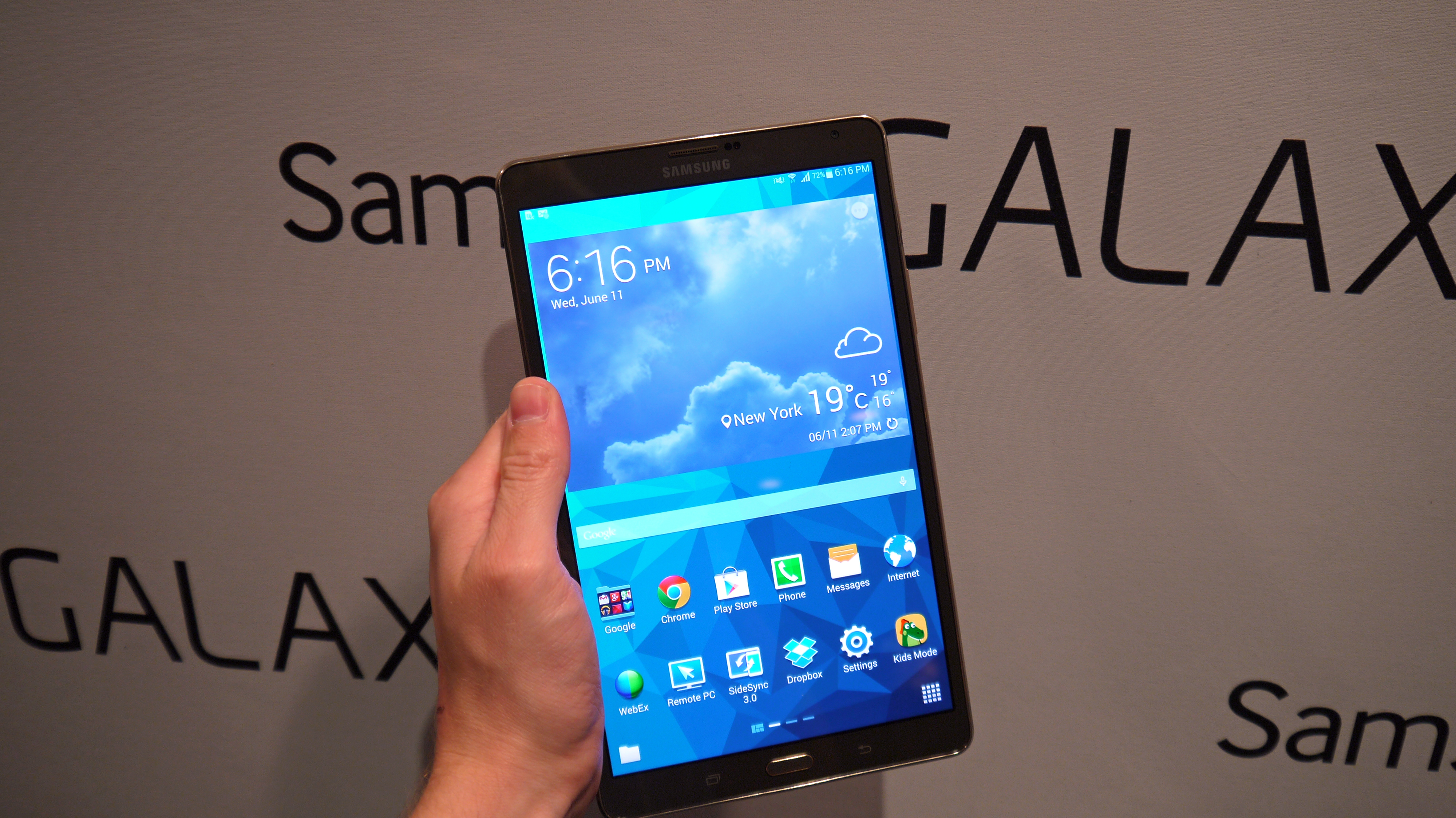The Samsung Galaxy Tab S impresses: so why does the Tab Pro exist?
A slate-based conundrum

- Read our Samsung Galaxy Tab S review
The launch of the Samsung Galaxy Tab S range impressed me: two tablets with great screens and decent amounts of power, just the sort of thing the Android world needs.
But then it begs the obvious question: why on Earth did Samsung make the Galaxy Tab Pro range, launched in January at CES this year?
Back then I questioned what a 'Pro' tablet really was, as that device looked a heck of a lot like a consumer device with an extra word thrown into the title to allow it to flutter its techno-eyelashes at the lucrative enterprise market.
Compare that tablet to the Tab S. There's very, very little difference in the specs: same CPU, same RAM, same resolution, same version of Android. But the Tab S has the far superior screen technology, a slimmer design and a better packaging overall.
In fact, apart from a smaller battery, the Tab S is an incrementally better tablet in nearly every area. So why did the Tab Pro range exist in the first place? Surely it would have been more sensible to launch the Note Pro 12.2 as a standalone product and focussing all the attention there.
Then we wouldn't have the curious situation of Samsung having two near identical tablets on the market - one with a few enterprise elements, the other with a screen that can offer consumers something really different.
If you look at Samsung's sales numbers, they're pretty impressive in the tablet market without having a real flagship product: 40 millions units sold last year, which is a decent number when there's no real iPad competitor.
Get daily insight, inspiration and deals in your inbox
Sign up for breaking news, reviews, opinion, top tech deals, and more.
And that's what's so sad about the launch of the Galaxy Tab Pro range - by having another set of tablets on the market, it devalues the prowess of the Galaxy Tab S launch today, coming mere months after the Pros were shown off in Las Vegas.
Stop the carpet bombing
Imagine what Samsung could do if it had a single tablet launch each year (or two if it wanted to split off the Note element to its own segment, which makes sense given it works for a different market). The hype would reach at least half that of the Galaxy S5, which is vying with Apple for the most talked-about announcement of 2014.
But now it seems that every time the sun rises we're talking about a different Samsung product. At least in the smartphone market the roles were largely specified last year, and we got a sequel to the S4 Active, the S4 Zoom and we're likely to get a Galaxy S5 Mini any day soon (as it's a huge seller for Samsung).
I'm not sure what's going on with the Samsung Galaxy F / Prime, but I get the feeling it could be more proof of concept before becoming the blueprint for the Galaxy S6 in 2015.
But the tablet market is already fragmented for Samsung, so stop carpet-bombing the industry with loads of similar designs to see what sticks. Consumers end up confused between the Tab 7 and Tab 8, the Note 10.1 and Note Pro, especially when they're being enticed to pick one up as part of a bundle deal.
Then again, maybe I'm being too blinkered. After all, Samsung's leading a number of technological sales charts, has million of whichever currency you choose in profits and doesn't seem too bothered by what the competition does, preferring to stick with its tried-and-tested plastic designs.
And the Tab S is a genuinely good tablet (albeit with a design that could be improved). But for all that good fortune, last year brought the first drop in profits for the South Korean firm as the competition intensified in smartphones to lower margins.
The same will happen in tablets as well, and to lure customers companies need a clear strategy, making a clear decision over the technology and specs they're going for as they choose a device for the next few years with confidence.
The lower cost of the Galaxy Tab S range will definitely help - parity with iPad Air is good, although cheaper would have been a huge selling point - but Samsung needs to be as clear with its strategy as possible to get consumers on side.
Target different markets by all means, but please Samsung: don't launch another Galaxy Tab before 2015.

Gareth has been part of the consumer technology world in a career spanning three decades. He started life as a staff writer on the fledgling TechRadar, and has grew with the site (primarily as phones, tablets and wearables editor) until becoming Global Editor in Chief in 2018. Gareth has written over 4,000 articles for TechRadar, has contributed expert insight to a number of other publications, chaired panels on zeitgeist technologies, presented at the Gadget Show Live as well as representing the brand on TV and radio for multiple channels including Sky, BBC, ITV and Al-Jazeera. Passionate about fitness, he can bore anyone rigid about stress management, sleep tracking, heart rate variance as well as bemoaning something about the latest iPhone, Galaxy or OLED TV.